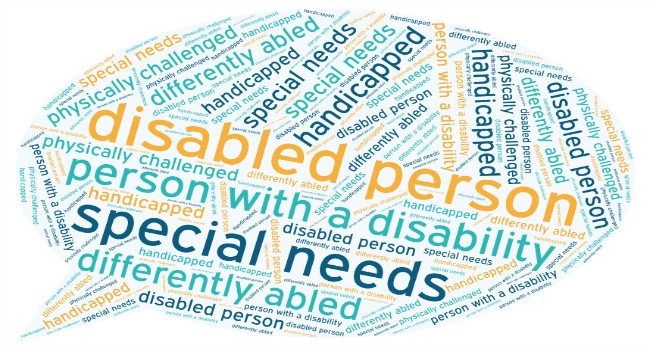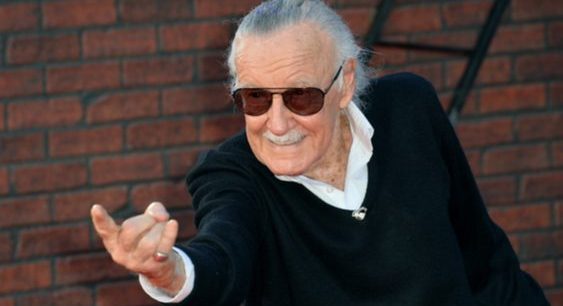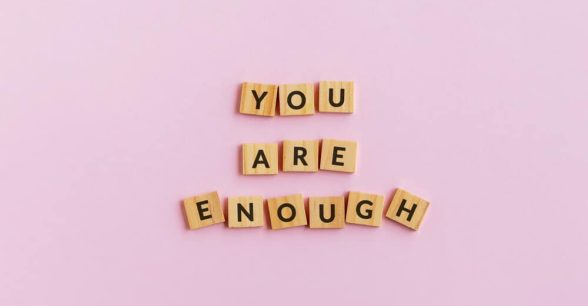My Journey with Disability Language and Identity
Are we “handicapped” or “disabled,” “disabled people” or “people with disabilities,” “differently abled” or “special needs?” The debate over disability language is exhausting and exasperating. But I come back to it because the ever-changing ways we talk and think about disability track my own journey with disability.
When I was very young, I remember my father saying “He has problems” to refer to my disabilities. This usually happened when he had to explain to a stranger some accommodations I would need. This was my father’s makeshift way of pointing out my disabilities without telling a long personal story. It didn’t offend me, but I do remember thinking the phrase was awkward. Thinking about it now makes me cringe a little.
Through most of my childhood and into my teens, I used “handicapped,” because it was the accepted term in the late ‘70s and early ‘80s. It made sense to me at the time. A “handicap” is a disadvantage, but not necessarily a serious one. I assumed that my physical impairments would limit my potential, but not too badly and not in every aspect of my life.
I was otherwise a pretty confident kid, so this feeling of minor hindrance was fine with me. “Handicapped” seemed like a good fit with my experience, and it required no explanation.
Then, around the time I left high school and started college, my father learned the phrase “person with a disability” from disability activists he met through his public health work. I think it changed his thinking about disability in a positive way, and for years he tried to convince me that it was a better term than “handicapped.” It had something to do with being a “person first” and “disabled by society,” not by my impairments, but I wasn’t having it. I already had it all figured out. This was a Dad thing to me, and I was a teenager.
I graduated from college in 1989, the same year d/Deaf students at Gallaudet University were in the news, demanding the appointment of a d/Deaf president. It was the first time I had heard of anything like “disability activism.” Meanwhile, the Americans with Disabilities Act was moving towards passage, and that introduced me to the broader disability rights movement.
In 1990, I started working for my local Center for Independent Living. Again I heard about the same “person first” language my father tried so hard to explain, but this time, it stuck, likely because it came from authentic disability activists, most of whom were disabled themselves. From my new friends and colleagues, it finally started to make sense. And while I never liked the awkward phrasing, I accepted it, because it was the new, progressive term within the disability community.
“Person with a disability” also fit my young adult view of disability. Disability was a “thing” that I “had,” not a “someone” that I “was.” For a long time, that was a massively important distinction.
After more than 20 years, when I was in my mid-40s, I left Independent Living Center work, partly because I wanted to explore disability culture and activism in other ways, especially online. One of the first things I found was that in the 2010s, the most interesting disabled people out there said that they were “disabled people,” or just “disabled,” and called it “identity first” language. This was in direct opposition to “person first.”
I was relieved. “Disabled” is much smoother to write and say than “person with a disability.”
The more I thought about it, “identity first” language started to again change how I thought about my disabilities. I stopped worrying about whether or not my disabilities “define” me, and started to embrace the fact that like it or not, I am part of a community, a shared identity. I’m disabled. And I do like it.
There are strong links between language about disability and thinking about disability, both in my own life and in the broader disability community. As tiresome as it can be to keep up with all the ways of thinking about disability language, it helps describe and shape who we are. Today, I find myself more comfortable with my disability identity than I have been since childhood, and much more empowered and proud.
Andrew Pulrang is a disability blogger, co-coordinator of #CripTheVote, and worked in Independent Living for 22 years.
About Rooted In Rights
Rooted in Rights exists to amplify the perspectives of the disability community. Blog posts and storyteller videos that we publish and content we re-share on social media do not necessarily reflect the opinions or values of Rooted in Rights nor indicate an endorsement of a program or service by Rooted in Rights. We respect and aim to reflect the diversity of opinions and experiences of the disability community. Rooted in Rights seeks to highlight discussions, not direct them. Learn more about Rooted In Rights



